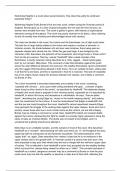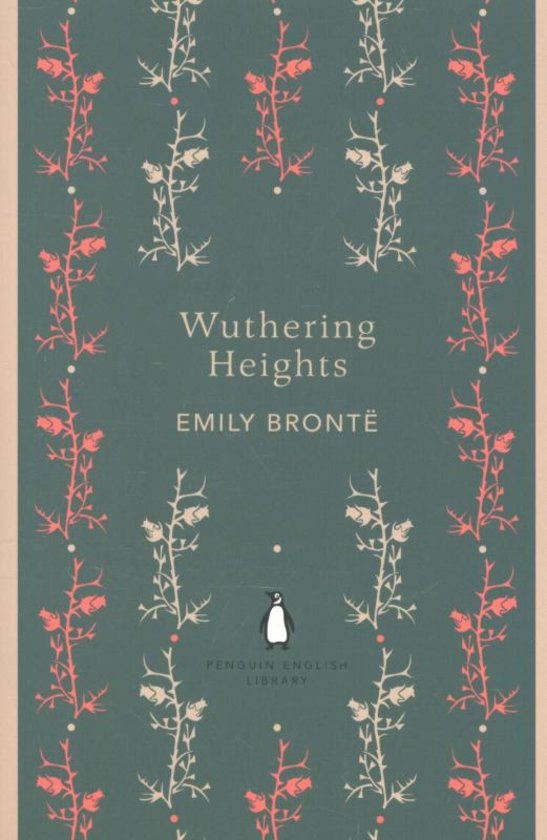Wuthering Heights is a novel about social divisions. How does this justify its continued
popularity today?
Wuthering Heights Emily Bronte’s first and only novel, written during the Victorian period of
England. Bronte grew up in a time of great inequality; the rich were far from the poor, as
women were divided from men. The novel is gothic in genre, with themes of supernatural
elements running all throughout. The novel was poorly received on its debut, critics claiming
its lack of morality was shocking and abhorrent[get actual critic quotes].
The main two families in the novel, the Lintons and the Earnshaws, are of high social class.
The both live in large family estates in the moors and employ a number of servants. In
Victorian society, the divide between rich and poor was immense, them being seen as
separate classes who should not mix. While this gap was large, it was bridged by the
character of Mr. Earnshaw, the patriarch of the household, who brings home a “street urchin”
from his trip to Liverpool. This boy, named “Heathcliff” after a dead member of the
Earnshaws, is poorly received, being described as a “dirty, ragged… black haired gypsy
brat” by our narrator, Nelly Dean. This comment of utter discrimination against the youth
shows the utter difference between rich and poor; the wealthy Earnshaws cannot understand
why this rugged child should be allowed in their home. He is an outsider to them, utterly alien
in all that he is and does, and this is expressed in how he is received. This lack of hospitality
due to his origins shows clearly the divisions between the classes, and is likely a comment
by Bronte on this.
The Linton household is described elaborately and ornately in the novel, containing,
“carpeted with crimson… and a pure white ceiling bordered with gold… a shower of glass
drops hung by silver chains in the centre”, as described by Heathcliff. This elaborate display
of wealth and social class is poignant in this Victorian period, especially as it is described by
Heathcliff, to whom this luxury and decadence is unthinkable. He says, “how we pitied
them!”, describing the young Edgar as, “stood on the hearth weeping silently”, and making
clear his resentment for the Lintons. It must be remembered that Edgar is Heathcliff’s foil,
and the two are rivals throughout the novel. Heathcliff’s natural resentment towards Edgar
may represent the struggle of the working class against the upper classes- those who live in
poverty versus those who live in such ornate rooms as the Lintons, yet are still unhappy.
Bronte may be making a comment on social class, Heathcliff’s hatred and constant battle
against the Lintons representing the fight for wealth in a society highly opposed to rising the
ranks of class as Victorian Britain. The divide was not meant to be bridged, and it is
unnatural that anybody should even attempt it.
Nelly Dean is an unreliable narrator, and the narrator of most of the novel. She described
Heathcliff as a “monster”, dehumanising him with such terms as, “it”, all throughout the story,
beginning with his introduction to the Earnshaw household. This dehumanisation of the
“gypsy brat”- as, again, Dean describes him- makes it clear that he is not welcome in the
upper classes due to his ignoble birth. In Victorian society if a person was born poor, they
were expected to stay poor their whole lives and not to mingle with the well-born upper class
of society. This is reflected in how Heathcliff is never truly accepted into the wealthy families
which surround him, always being viewed by others as a “villain”. This constant portrayal of
Heathcliff as a violent, dangerous monster may be a comment by Bronte on how the poor
could never truly live with the wealthy or advance in class due to their birth, reflecting the





